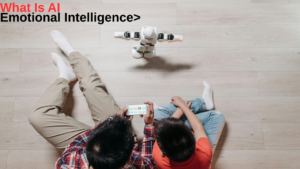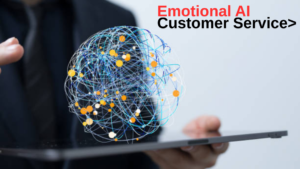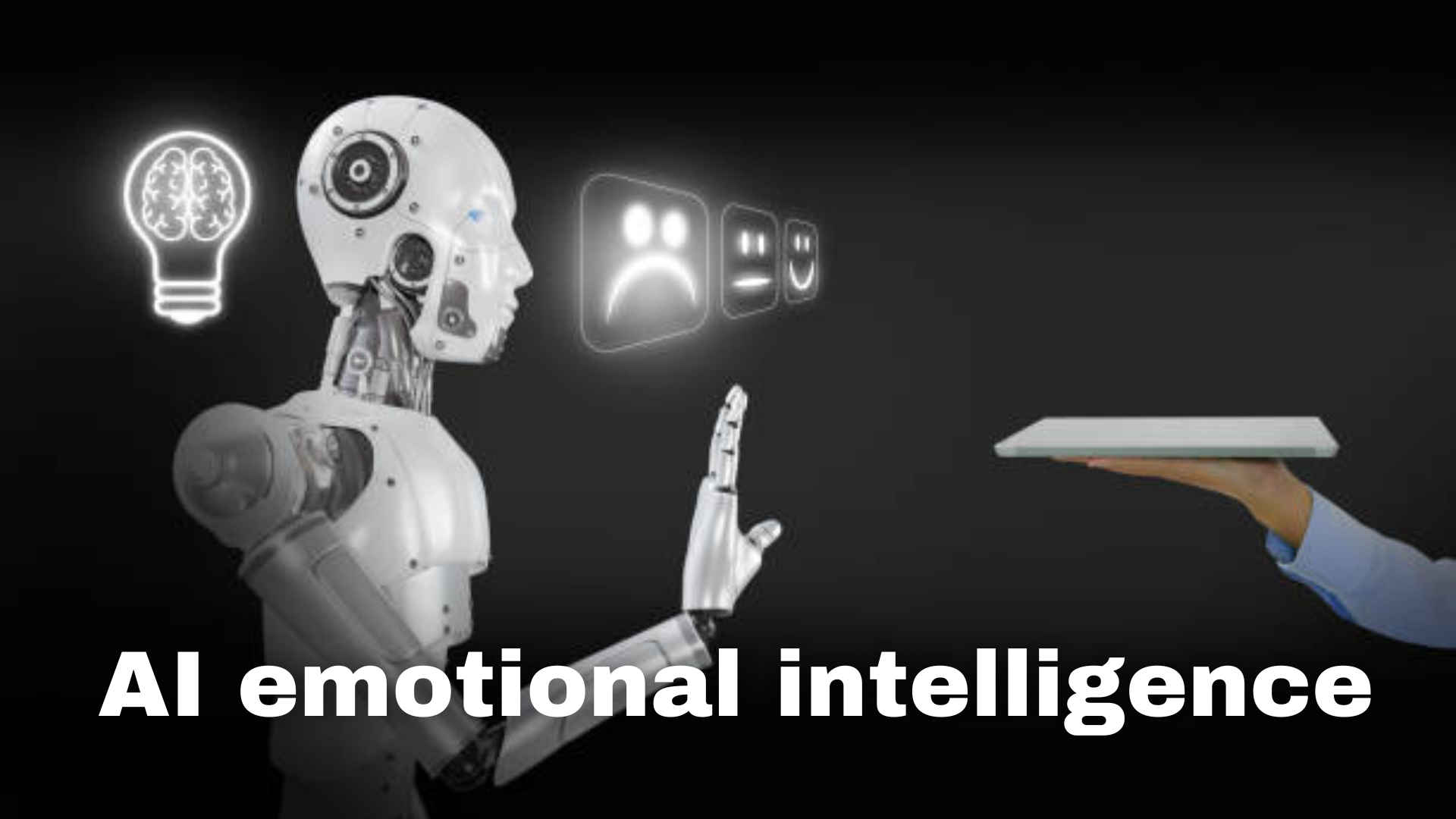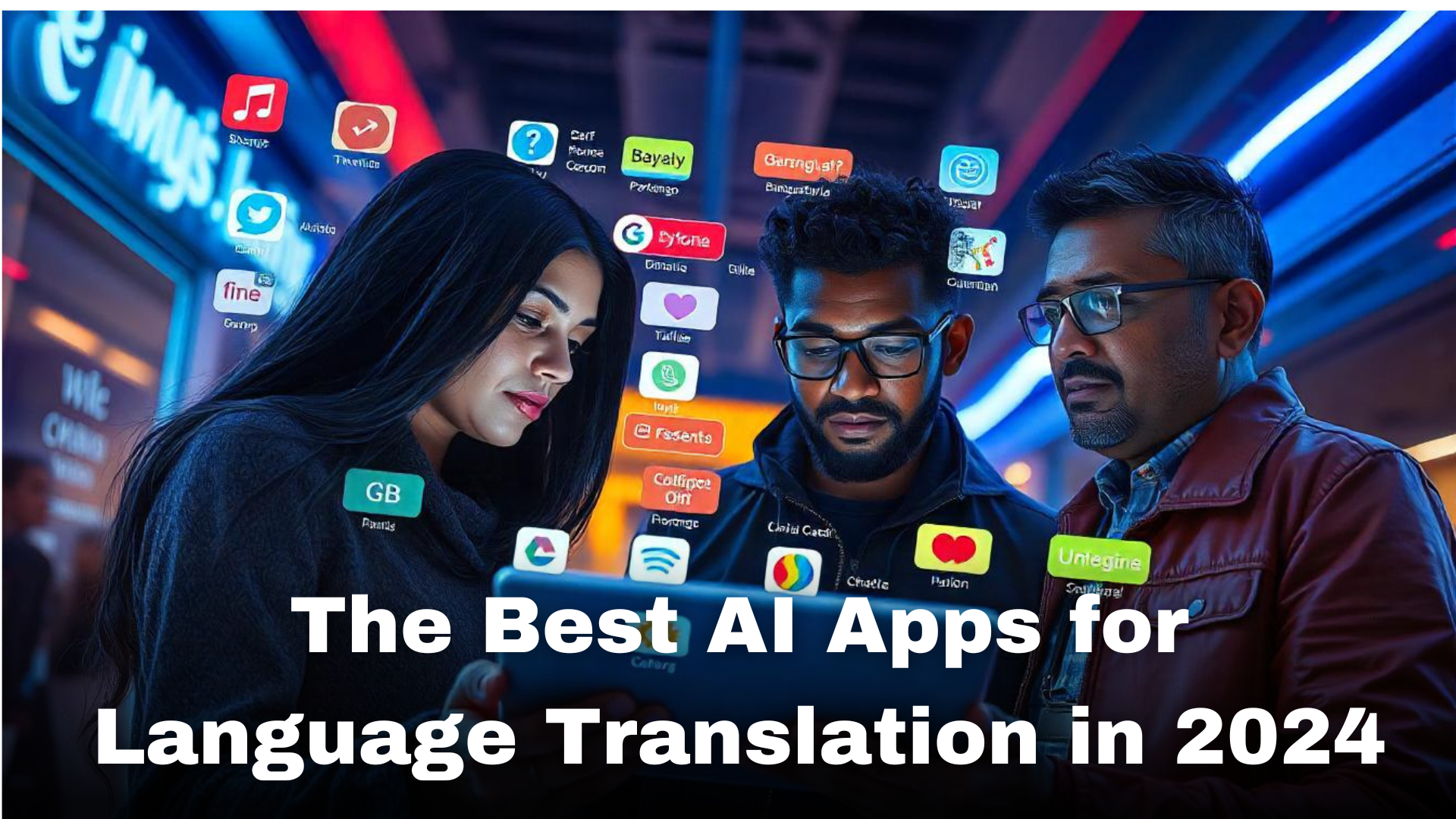AI Emotional Intelligence: The Future of Human-Machine Interaction
When we think of artificial intelligence, we often focus on its ability to process vast amounts of data, perform calculations, or automate tasks. But what if AI could understand and respond to emotions, not just logic? Enter AI emotional intelligence, a rapidly emerging field that aims to make AI more human-like by recognizing, interpreting, and even responding to human emotions.
But how can machines, which are inherently logical, grasp something as complex and nuanced as emotion? And more importantly, what implications does emotionally intelligent AI have for industries like customer service, healthcare, or even everyday human interactions? Let’s explore how AI is developing the ability to “feel” and how this will transform our relationship with technology.
What Is AI Emotional Intelligence?
Emotional intelligence refers to their capacity within oneself as well as others to observe, assess, and control emotions. In simple terms, for AI it refers to building the capacity of the machines to be able to read emotional expressions, respond to emotional tones in peoples’ voices or even words written by people that make evil robots understand emotions and be kinder to human beings.

1. How AI Detects Human Emotions
To begin with, it is paramount for AI to conduct emotion recognition in order for it to claim emotional intelligence. This is done with a number of ways including:
- Facial Recognition Facial expressions can be read accurately using image recognition designs within AI systems and this is meant to help in finding out emotions such as happiness, sorrow, and even anger among other restless emotions. For instance, Affective is one of the companies that makes Emotion AI technology that assesses people’s emotional reactions in real time by means of face reading.
- Voice Analysis Emotions can be read in a person’s voice and hence incorporated in AI devices through different parameters, including syllable stress and speech rate. For example, Cogito evaluates these features in the voice of a person to find out their emotional state, which could be stressed frustrated or at peace, during a conversation over the phone.
- Analyzing text emotions: Even in actions where speech is absent, AI Turing test to communicate feelings via words. Such as emails, social media interactions and customers’ reviews, sentiment analysis tools employing textual content analysis, detects such information using-processing of natural language technologies (NLP).
2. Emotional AI in Customer Service
Emotional intelligence in AI is widely used in customer service. Imagine you are calling a customer care call and an assistant is on the other end who is capable of recognizing the annoyance in your tone and responding in an equally displeased tone but with a more polite response and an engaging voice. This type of interaction can help to enhance the customer experience and deal with complaints faster.
- How it works: There are AI training mechanisms within the call centers where one of the emotions that’ve and not probable any of the depressions is sensitive, shout or even call down patient and to a not talking turey patient. After recognizing the feeling of these emotions the AI will change the way it responds to the situations for example by using more calming tones or using faster language in calming the situation.
- Benefits: Emotionally aware AI enhances customer experience by making the interaction seem more real. It also enables companies to handle massive volumes of incoming requests but still provide a tailored service.

AI Emotional Intelligence in Healthcare
Emotional AI will not only be useful in customer service but will also transform healthcare services, especially mental healthcare services. AI has the capacity to assist physicians and therapists in making and implementing treatment decisions by interpreting and adapting to emotional feedback.
3. AI-Assisted Mental Health Support
A range of AI-based tools are currently under development whose aim is to intervene emotional wellbeing, with continuous support for those in distress. They can know how to analyze one’s speech or look or even how one writes and tell if he or she is already depressed, anxious, or stressed.
- Illustration: Applications such as Woebot and Replika which are designed for mental health and wellness assessment do employ an artificial intelligence based chatbot to enhance therapeutic interaction and track patients’ mood per time. Although these applications cannot take over the role of a real therapist, they bridge the gap in mental wellness services.
- Relevance of the issue: The use of AI technology can provide a remedy to the problem of an inadequate number of mental health workers across the world. Also, Emotionally intelligent AI can also know when a patient’s mental state is deteriorating and call for action.

4. Enhancing Doctor-Patient Interactions
Identifying and moving along emotional gradients is another aspect of AI that can add value to the physician-patient relationship. Doctors employing AI tools equipped with emotional recognition systems, for instance, are capable of modifying their communication, managing emotional care, and in the end, restoring the patient’s confidence, more effectively than would have been the case without it.
- How: It is a telehealth platform with an incorporated AI system capable of interpreting a patient’s emotional state during the course of an interaction by analyzing, among other factors, the person’s face, speech, and spatial activity. When the AI analyzes and notes tension or distress in the patient, for example, the doctor is suggested to offer comforting remarks or modify the dialogue to address the situation.
- The advantage: Artificial intelligence with an emotional component can help develop a more patient-centered healthcare facility, positively influencing patient satisfaction and care quality.
AI Emotional Intelligence in Business
Artificial intelligence capable of interpreting and responding to emotions goes beyond mere improvements in client care and healthcare services to making a positive impact on business activities. This is especially so in areas such as leadership, team building, and job satisfaction.
5. AI in Leadership and Team Dynamics
In the corporate environment, the leaders ought to analyze the team’s interaction in terms of emotional aspects in order to help enhance teamwork and productivity. Emotionally intelligent AI can help managers scan the team’s mood, causes of possible clashes, and ways to ease communication in the organization.
- Example: AI tools like Humanyze track the emails, chats and meetings of workers to analyze workplace dynamics. It’s AI then presents a way to ameliorate the communication and interface with the organizational dynamics where with proper management of emotions would lead to high levels of teamwork.As a result: The emergence of this advanced technology – Emotionally intelligent AI – in the workplaces is expected to enhance workplace culture with help of communication by curbing and cutting down any possible communication gaps.
6. Emotional AI and Consumer Engagement
In marketing and advertising, Ai emotional intelligence can turn the tables. Knowing how people feel about a product or an advertising campaign allows companies to forecast and elicit behavior that would be most beneficial to them.
- How it works: Integrating such commercially available tools, social media sentiment analysis AI instruments perform their task in real time by gauging audience response on various websites, including social media, customer review websites, and more. This helps the brand to build a coherent messaging strategy with its target audience.
- The advantage: Emotional AI helps in engendering such attachments by letting brands appeal to the emotions of the consumers leading to better engagements and a higher conversion rate.
The Future of AI Emotional Intelligence
As technology development is catching pace, emotional intelligence will also play a vital role in furthering technology adoption and making it more human-centric. Whether it is addressing customer concerns, improving the quality of health services, or even re-envisioning the art of business management, emotionally intelligent AI can change the way we interact with machines for the better.
However, with such progress there are also important issues of an ethical nature. What safeguards can be put in place so that there is no misuse of emotionally intelligent AI? On the other hand, how do we strike a healthy balance between the efficiency of machines and the ability of people to exhibit compassion? These are some of the concerns that are going to arise as the integration of emotional intelligence in AI comes as a reality in society.
Finally, while the challenges presented by technology that can appreciate and converse like humans are many and varied, integration of emotionally competent technology ensures we remain purpose oriented, rather than just being efficient, we are effective.
Important Link
- Who is the owner of OpenAI
- What is AI chat GPT?
- What are the 4 types of AI technology
- How is AI being used in higher education
- AI in the Metaverse
- 10 Great Machine Learning and Artificial Intelligence
- Healthcare and Medical Diagnostics
- How AI is Reducing Costs in Healthcare
- Artificial General Intelligence in Healthcare
- AI in Autonomous Vehicles
- Best AI Apps for Language Translation in 2024




